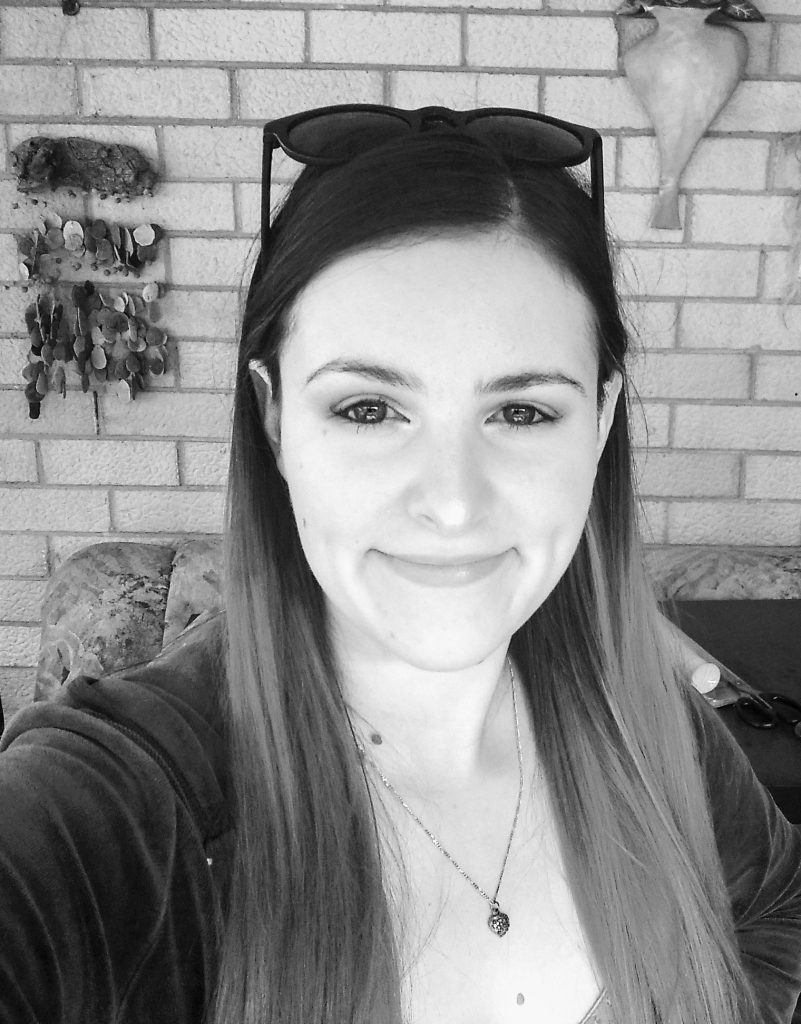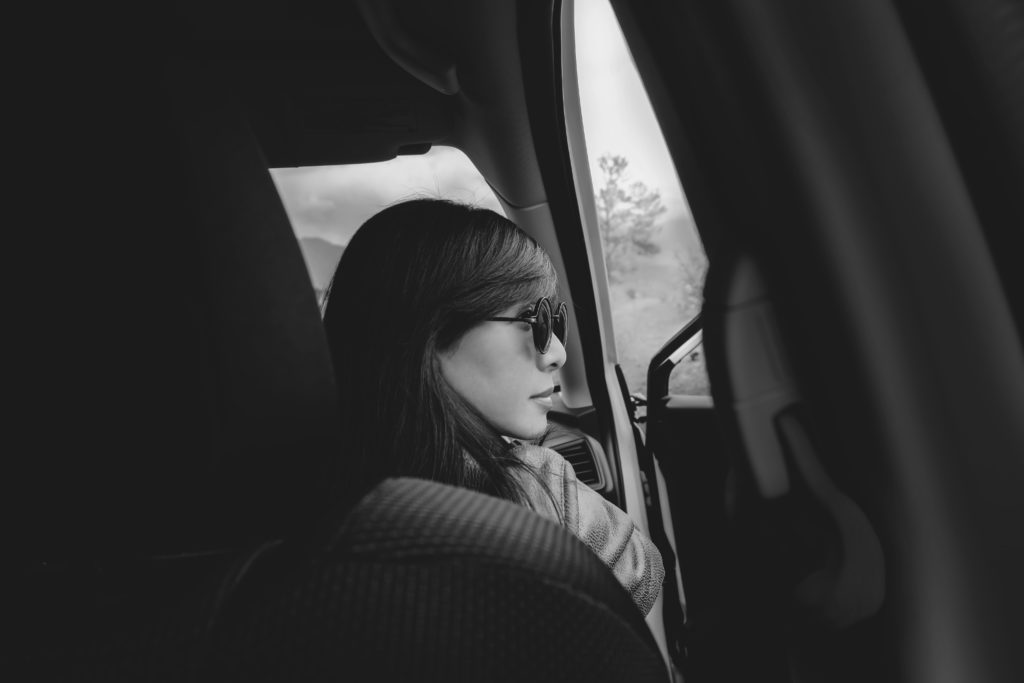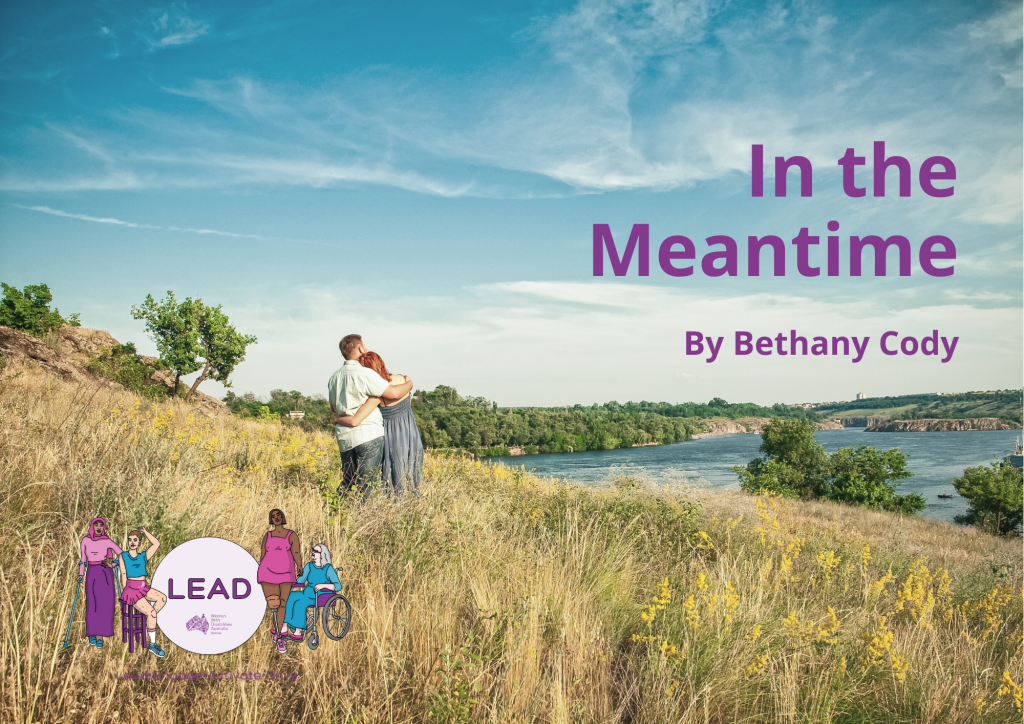If this post blog post brings up issues for you, please contact Lifeline on 13 11 14 or Beyond Blue on 1300 224 636.
If you look at me, you can’t see it. There will come a time when I will see nothing at all. In 2018 during a routine eye exam, an abnormality was found, and I was referred to an ophthalmologist. After a series of strange new eye tests and a referral to yet another specialist I was diagnosed with a degenerative eye disease, retinitis pigmentosa. I was told there is no cure, the rate of degeneration varies from person to person and I am likely patient zero – as to the best of our knowledge, no one in our family has this disease.
For years I struggled with my night vision, finding it difficult to adjust to dim lighting and walking at night, feeling like I was stepping into the abyss, never sure of where my feet would fall. Years of quiet concern pushed to the side, fuelled by my greatest fear, going blind, eventually led to making the appointment and my diagnosis.
In the same year, I met my soulmate. He is the biggest reason I continue to look for the positives in life and have not allowed depression to consume me, or regress back to self-harm, which I struggled with in high school. His support means that although the knowledge that I’m going blind crosses my mind multiple times a day – hyper aware of my blind spots, the TV-static shimmering of the world around me – I’m able to find meaningful distractions, normality and happiness.

The concerns I have for my future aren’t unique. I worry about bringing a child into the world with limited capabilities for looking after them, passing my condition on, burdening my partner and missing out on the milestones. I worry about my capacity to work and contribute in society, accessing the disability pension as well as continuing my creative writing career and how my creative process will be impacted. I worry about losing my individuality and being unable to express myself with makeup and fashion. Currently I feel like an outlier in the blind community because I’m not classed as legally blind and am able to function quite autonomously. I feel like I don’t quite belong in either worlds, sighted or unsighted.
My specialist recommended I stop pursuing my driver’s license because night driving would endanger myself and others. I recall a conversation I had with an Uber driver, where he asked why I didn’t drive. I boldly admitted to him the nature of my condition and he said, after slight hesitation, that I was brave for choosing not to drive when so many people my age were eagerly getting their license as a rite of passage. It was a bittersweet compliment, one that acknowledged the sacrifices that come with the loss of independence.
Some days I go back and forth about sharing my experience with vision loss, whether it should be something I do to help accept it myself or to help others understand what it’s really like. While I admire those who share their struggles, triumphs, their life with disability on social media for being so open and honest, I sometimes struggle to replicate these feelings about my own experiences. There are days I aspire to be more like a leader, loud and open and unapologetic, championing our successes and inspiring change, calling for better representation and equality. Other days I want to retreat, pretend, deny.

I believe there is such a thing as toxic positivity, where we overshare and try to twist our plight into something positive, something to be happy about or thankful for and although this is healing and liberating for some in finding a sense of community, I feel it can unfortunately invalidate other’s struggles, coming across as disingenuous or emotionally draining.
I am fortunate that since my diagnosis I have retained a fairly unchanged level of sight. In the meantime, I try to take each day as it comes, to be thankful when I wake in the morning and see the framed autumnal painting on our bedroom wall or my partner’s sunbathed face. I’ve learned to enjoy the little things and to keep a busy mind, to not indulge myself in wondering about the what-ifs. My next step is to take the genetic test in March of this year and despite my reluctance to uncover the timeline of my sight’s deterioration, I believe my partner and I will navigate the results to the best of our ability with the support of my specialist, family, friends and the wellbeing of our future in mind.
Bethany Cody is an Adelaide writer of short stories, flash fiction and poetry living with vision loss. She resides in the City of Churches with her boyfriend, parents and two rambunctious spoodles.
Disclaimer
The blog posts do not necessarily represent the views and opinions of Women with Disabilities Australia (WWDA), and blog posts are contributions made by women, girls or non-binary persons with disability about what leadership means to them. All possible care has been taken in the preparation of the information contained in this document. WWDA disclaims any liability for the accuracy and sufficiency of the information and under no circumstances shall be liable in negligence or otherwise in or arising out of the preparation or supply of any of the information aforesaid.

